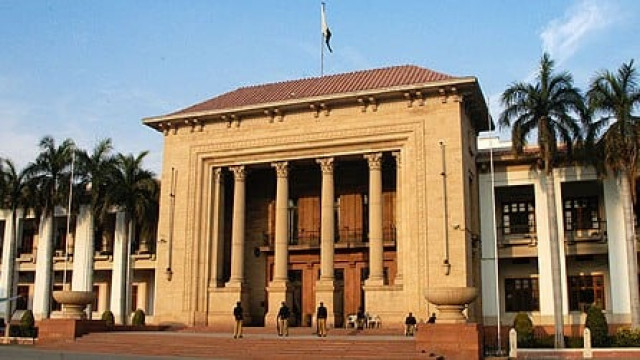Urging reforms: Punjab Assembly committee system ‘feeble and ineffective’
Only the KP assembly has a law committee.

Westminster Foundation for Democracy (WFD) programme manager Ali Imran said on Saturday that case analysis had shown that the Punjab Assembly had a feeble and ineffective committee system.
The WFD had arranged a meeting on the need for having effective parliamentary committees and their relationship with the proceedings of the Punjab Assembly.
The meeting was held to review committee systems of the parliament and provincial assemblies. Several lawmakers and representatives of civil society were present at the meeting and proposed a reformative agenda.
Imran said parliamentary committees functioned as mini-parliaments worldwide. He said effective committees complemented parliamentary legislation and oversight. Examples of the British parliament, the Scottish parliament, the Welsh parliament and the parliament of Northern Ireland were cited in this regard. Imran said the foundation was committed to working with the Punjab Assembly for capacity building and effective systems. He said it was impossible for all members of the assembly to contribute to its business individually. On the other hand, he said a committee consists of 11 members who could devote an adequate amount of time to analysing bills and holding the relevant departments accountable.
Parliamentary Affairs and Research Director General Inayatullah Lak presented a comparative analysis. He said effective committees could complement parliamentary work by meeting regularly and delving deeper into issues. Lak said committees could also seek expert guidance and invite public participation.
He said the structure of Punjab Assembly committees was nearly identical to committees in the parliament and other provincial assemblies. Lak, however, said the Khyber-Pakhtunkhwa Assembly and Sindh Assembly could take suo-motu notice of issues while the other provincial assemblies could not. He said committees in those assemblies could only scrutinise bills referred to them. Lak said the Punjab Assembly had 35 standing committees, two public accounts committees, two privilege committees, two assurance committees, two library committees and two finance committees. He said committee sessions in the Punjab, Sindh and Balochistan were held in-camera. In KP however, committee sessions were open to the public. Lak said committee rules were required to be framed in 30 days but in the Punjab the matter had been delayed. He said the Punjab had two public accounts committees. The opposition leader chaired one and a treasury member presided over the other. Lak said KP was the only province to have a law committee. Lak said the Punjab Assembly lacked a mechanism for law implementation. He said proceedings of committees should be televised.
Ayesha Javed, a campaigner for committee reform, highlighted her efforts and presented an agenda for reform. Javed had been part of a WFD delegation that visited the United Kingdom to observe the committee systems of the British and Scottish parliament. She said she had tabled a bill in 2013 to amend the rules governing the committee system. Javed said she had submitted a proposal regarding the establishment of a yearly calendar to facilitate parliamentary work by making sure that members were present in the assembly when required. She said giving the committees suo-motu powers would increase departmental accountability. Javed said committee sessions should be open to public. She said she had submitted the amendments with the support of 187 lawmakers.
Gender Mainstreaming Committee chairperson Raheela Khadim said that she had been unable to work for women’s welfare as she could not take and implement decisions in an individual capacity. Khadim said an effective committee system could be established by reforming rules and procedures.
Strengthening Participatory Organisation regional head Salman Abid said it was crucial to foster a democratic environment in committee meetings to ensure public participation. He said several members of civil society were willing to provide the committees with technical assistance.
Published in The Express Tribune, August 24th, 2014.



















COMMENTS
Comments are moderated and generally will be posted if they are on-topic and not abusive.
For more information, please see our Comments FAQ